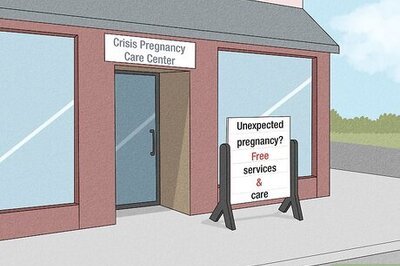
views
NEW YORK: Oil prices ended mostly unchanged on Monday, after hitting their highest levels in more than two years, as growing U.S. crude production and Britain’s delayed COVID-19 reopening dampened expectations for fuel demand growth and tighter supplies.
The market reacted negatively to a U.S. Energy Information Administration (EIA) forecast that shale oil output, which accounts for more than two-thirds of U.S. production, was expected to rise by about 38,000 barrels per day (bpd) in July to about 7.8 million bpd.
“We started off strong on expectations that the demand situation was building momentum as COVID vaccinations were high,” said Phil Flynn, senior analyst at Price Futures Group in Chicago. “Then the EIA report took the winds out of the sail.”
Brent settled up 17 cents at $72.86 a barrel. Earlier in the session, it reached $73.64 a barrel, its highest since April 2019.
U.S. West Texas Intermediate fell 3 cents to settle at $70.88 a barrel, after earlier touching $71.78 a barrel, its highest since October 2018.
The International Energy Agency said on Friday that it expected global demand to return to pre-pandemic levels at the end of 2022, more quickly than previously anticipated.
The IEA urged the Organization of the Petroleum Exporting Countries and allies, known as OPEC+, to increase output to meet demand.
OPEC+ has been restraining production to support prices after the pandemic wiped out demand in 2020, maintaining strong compliance with agreed targets in May.
Motor vehicle traffic is returning to pre-pandemic levels in North America and much of Europe, and more planes are in the air as anti-coronavirus lockdowns and other restrictions are being eased.
However, Britain late Monday delayed plans to lift most remaining COVID-19 restrictions by a month, because of the rapid spread of the more infectious Delta variant.
Heavy maintenance seasons in Canada and the North Sea also have helped prices, said Rystad Energy analyst Louise Dickson. The firm estimates about 330,000 bpd of oil and condensate supply is offline at Canada oil sands projects, along with another 370,000 bpd offline in the North Sea.
Disclaimer: This post has been auto-published from an agency feed without any modifications to the text and has not been reviewed by an editor
Read all the Latest News, Breaking News and Coronavirus News here.













Comments
0 comment